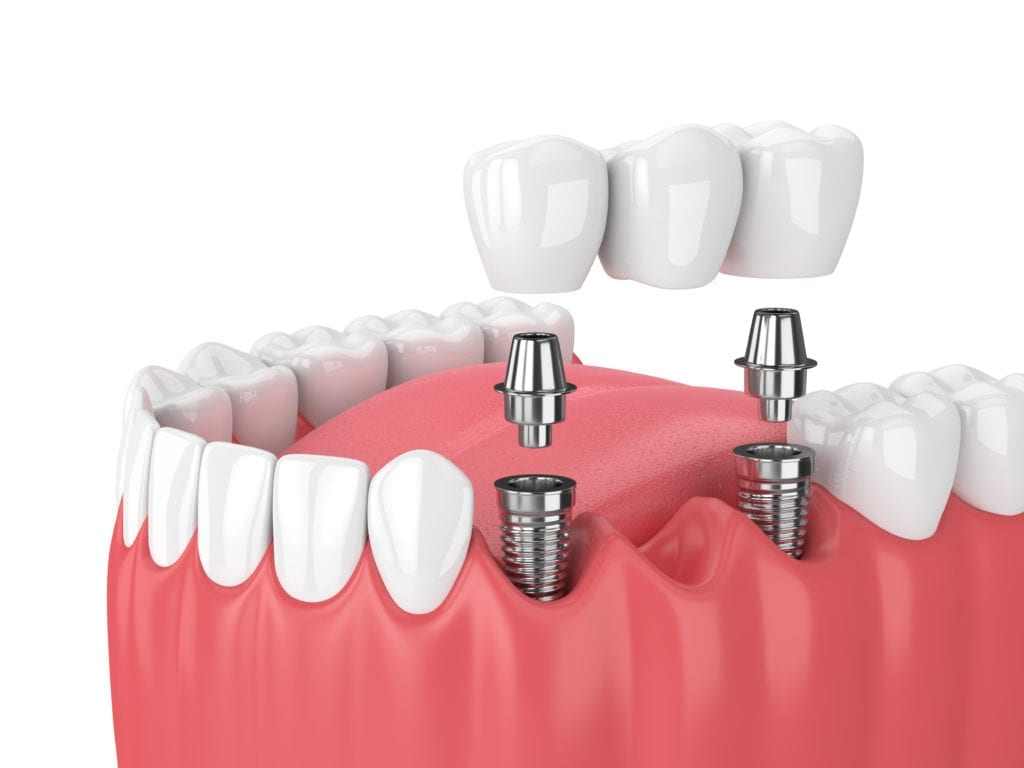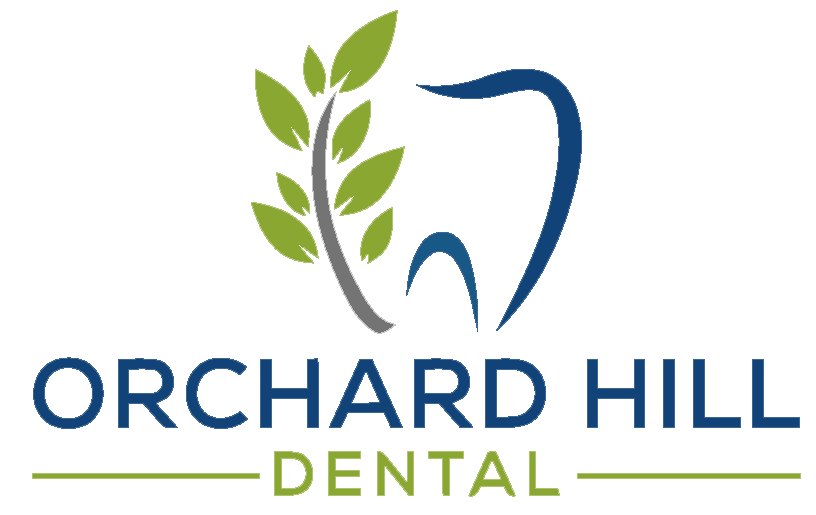Dr. Jessica Christy and her team at Orchard Hill Dental in Hendersonville, North Carolina provide restorative dental treatment with dental bridges. This treatment option is best for patients with one or more missing teeth, especially consecutive missing teeth.
If you would like to request a consultation with your dentist in Hendersonville, NC or a member of her dental team to receive a dental bridge, call (828) 247-7001, or schedule an appointment online.

Benefits of a Dental Bridge
A dental bridge can offer multiple benefits to patients with missing teeth. This restoration:
- Helps to support any remaining tooth structure
- Restores the ability to bite and chew evenly
- Prevents teeth from shifting
- Maintains a patient’s face shape
Treatment with Dental Bridges
Dental bridges can be removable or secured with dental implants. Secured dental bridges provide more stability and last longer than removable dental bridges. Before treatment, Dr. Christy will perform an examination of the teeth and gums. They will work with you to create a comprehensive, personalized plan for the placement of the dental bridge.
If there are any natural teeth adjacent to tooth gaps, they can be shaped to ensure that they can properly support the bridge. Dental impressions will be made of teeth so your dental bridge is a custom-fit. Dental bridges usually consist of a metal framework that is covered by porcelain to improve the aesthetics of the patient’s smile. When complete, we will ensure that the dental bridge fits properly before it is attached with adhesive cement.
Dental Bridge FAQs
Learn the answers to frequently asked questions about dental bridges below:
Are dental bridges comfortable?
Once placed and adjusted, dental bridges are generally comfortable and function much like natural teeth. Initially, you may experience some discomfort as your mouth gets used to the new appliance, especially if the bridge is made of metal. Over time, as your mouth adjusts, the bridge should feel natural and blend seamlessly with your other teeth.
Can I eat with a dental bridge?
Yes, you can eat with a dental bridge, but adjusting to the new appliance may take some time. Initially, you may want to avoid eating hard or sticky foods that could damage the bridge or cause discomfort. Once you’ve fully adjusted, you should be able to eat most foods comfortably, though it’s still important to avoid foods that can harm the bridge, such as hard candies or very tough meats.
How long is the dental bridge procedure?
Getting a dental bridge typically requires two visits. During the first visit, the dentist will prepare the adjacent teeth by filing them down to fit the crowns. Impressions of your teeth will be taken to create a custom-made bridge. A temporary bridge will be placed while the permanent bridge is being made. At the second visit, the permanent bridge is fitted, adjusted, and cemented.
How long does a dental bridge last?
Dental restorations such as dental bridges require proper care to maintain them and extend their longevity. Proper oral hygiene and regular visits to your dentist are essential to ensure good oral health. With proper maintenance, a dental bridge can last up to a decade or even longer. Sometimes, it may need replacement sooner due to wear and tear or decay.
Can a dentist remove dental bridges?
Yes, dentists can remove dental bridges. Depending on the type of bridge, the dentist may need to use a drill or other tools to break down the cement that holds the bridge in place. After removing the dental bridge, your dentist will examine the underlying tooth structure for any damage that may have occurred during removal. If necessary, your dentist can repair or replace the dental bridge after removing the previous one.
How long does it take for a dental bridge to settle?
Typically, a dental bridge will take about two weeks to settle. During this time, the patient may experience discomfort and sensitivity as the gums adjust to the new structure. To help with pain or discomfort, a dentist may recommend over-the-counter pain medications, including readily available options such as ibuprofen or acetaminophen.
